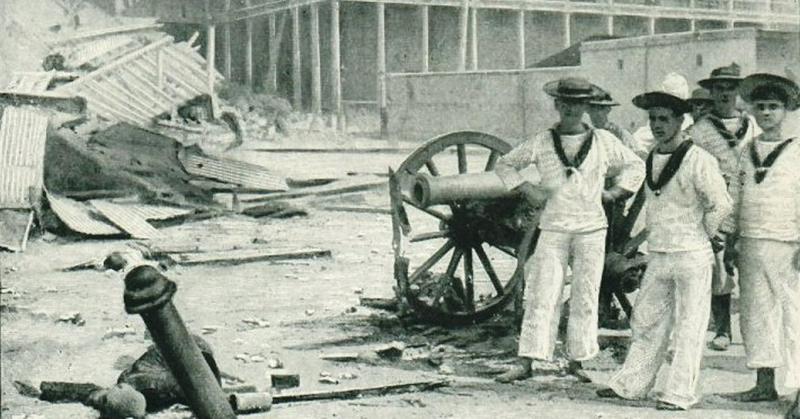The Anglo-Zanzibar War: The Shortest War In History
By | January 11, 2022

Wars often last years and sometimes decades, but the Anglo-Zanzibar War lasted just 38 minutes, making it the shortest war in history. Why was this war fought? And why was it over so quickly?
British Occupation Of Zanzibar
By the late 1800s, Britain had sunk its colonial teeth deeply into East Africa, but other European countries, like Germany, also had a stake in the region, leading to the Heligoland-Zanzibar Treaty of 1890, which granted control of Tanzania and Zanzibar to Germany and Britain, respectively. Britain quickly set up a puppet government headed by Sultan Hamad bin Thuwaini, and things went smoothly for the empire until August 25, 1896, when Hamad died suddenly and unexpectedly. The cause of his death was never determined, but rumors swirled that he was poisoned by his power-hungry cousin, Khalid bin Barghash, who immediately installed himself as sultan.
Khalid may have believed he had a legitimate claim to the throne, but the British government was the real authority of the land, and chief British diplomat Basil Cave ordered Khalid to step down. As Cave and Khalid failed to negotiate, both sides amassed troops, and within 24 hours, Khalid's palace was protected by nearly 3,000 surprisingly well-armed men.

The Anglo-Zanzibar War
Finally, Cave issued Khalid an ultimatum: Vacate the palace by 9:00 A.M. on August 27, or face the wrath of the British military. Khalid called his bluff, so British warships began lobbing bombs at the palace once the deadline had passed, and within two minutes, most of Khalid's artillery was destroyed. By 9:04, Khalid had slipped out the back door, leaving his soldiers and servants without a leader, and the wooden supports of the palace soon collapsed, trapping Khalid's men inside. Although Khalid and his supporters were clearly defeated, the shelling continued until 9:38, when Khalid's flag was pulled down as a signal of surrender. More than 500 of Khalid's soldiers died in the 38-minute war, most within the first 10 minutes, while only one British officer was even injured. He soon recovered from his wounds.
With Khalid removed from power, the British government found another pro-Britain leader to serve as the puppet sultan, and Khalid escaped Zanzibar to seek asylum at the German Consulate in nearby Tanzania. He wasn't captured until 1916, after which he was tried and sentenced to exile but eventually allowed to return to East Africa.

